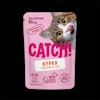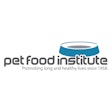
Although the U.S. Food and Drug Administration has largely abandoned its investigation into correlations among certain dog foods and canine dilated cardiomyopathy, dog food buyers still make purchasing decisions influenced by the investigation. In the 2021 Association for Pet Obesity Prevention survey, veterinarians especially believed that grain-free diets were not healthy for dogs or cats.
“Confusion about the potential link between grain-free pet foods and DCM appears to be growing, according to the 2021 survey,” Association for Pet Obesity Prevention researchers wrote in the organizations’ report on the survey results.
Among pet owners, 38% of dog owners and 18% of cat owners answered that grain-free diets were not healthy for their pets. However, those figures jumped to 88% of veterinary professionals when considering dog food and 73% about cat food.
On the other hand, 27% of dog owners and 48% of cat owners agreed with the statement that “grain-free diets are healthy for your pet,” compared to only 7% of veterinary professionals who are dog owners and 22% who own cats.
Compare that to the 2017 APOP survey when 45% of pet owners and 22% of veterinary professionals believed grain-free options were healthier diet choices.
Many pet owners remain unsure about the topic. In the 2021 survey, 35% of dog owners and 34% of cat owners answered “I don’t know.” Only 5% of veterinarians acknowledged they didn’t know.
DCM fears still have ramifications for pet food companies. Of 2021 survey respondents, 21.5% of dog owners and 20.4% of veterinary professionals reported changing brands as a result of concerns about grain-free diets. Nevertheless, 79% stated they had not changed brands due to the issue.
FDA investigation into DCM and grain-free dog food
In July 2018, the U.S. Food and Drug Administration’s (FDA) publicly announced the agency’s investigation into correlations among certain dog foods and DCM. Federal authorities examined reports of DCM in dogs eating certain diets labeled as grain-free, particularly those containing peas, lentils, other legume seeds, or potatoes as main ingredients, which were more common in diets labeled as grain-free. A year later, the agency released data from their investigation that stated 93% of the 524 reported cases of DCM, involved dog foods made with peas and/or lentils, while 90% of the afflicted dogs had eaten diets labeled as grain-free. The FDA named 16 brands most frequently eaten by dogs involved in official reports of DCM. Sales of grain-free dog food in general, and those named brands especially, fell following FDA’s announcements, while more new products began to include taurine. Pet food companies adapted their marketing, while developing new dog foods, treats and toppers specifically meant to ease pet owners fears of DCM. Instead of claiming that all grain in pet foods were negative, brands became “grain friendly” as they began to include ancient grains or other “healthy grains, while continuing to malign conventional grains like wheat and corn.
Although the FDA investigation caused upheaval in the pet food industry, scientists and other involved with the pet food industry have pointed out the lack of direct evidence connecting those grain-free dog foods to DCM, since the first FDA announcement. Likewise, some have criticized the FDA for going public with the investigation before solid evidence existed, especially considering the negative economic consequences for dog food brands.
Canine dilated cardiomyopathy heart disease
DCM affects dogs’ heart muscles. The disease results in an enlarged heart. As the heart and its chambers become dilated, pumping becomes more difficult and heart valves may leak, leading to a buildup of fluids in the chest and abdomen. DCM often results in congestive heart failure. Heart function may improve in cases that are not linked to genetics with appropriate veterinary treatment and dietary modification, if caught early. Breeds that are typically more frequently affected by DCM include large and giant breed dogs, such as Great Danes, Boxers, Newfoundlands, Irish Wolfhounds, Saint Bernards and Doberman Pinschers. It is less common in small and medium breed dogs, except American and English Cocker Spaniels. Cases reported to the FDA included Golden and Labrador Retrievers, Whippets, a Shih Tzu, a Bulldog and Miniature Schnauzers, as well as mixed breeds.
Association for Pet Obesity Prevention survey methodology
The online survey was completed by 865 pet parents and veterinary professionals from October 12 to December 31, 2021. Participants lived in 47 U.S. states and the District of Columbia.
Generational representation included 25% Baby Boomers (57-75 years of age), 32% Millennials (25-44), 21% Generation X (41-56), 18% Generation Z (<25), and 3% Silent Generation (>75).



















